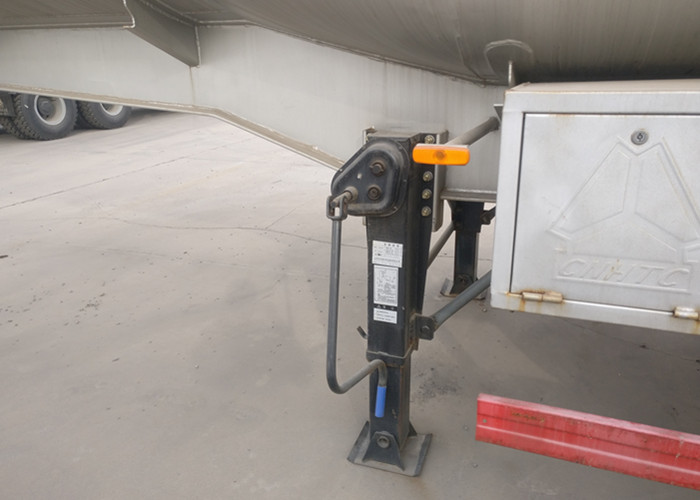In today’s world, choosing the right fuel source is crucial for both residential and commercial energy solutions. Among the most popular options are Liquefied Natural Gas (LNG) and propane. This article aims to provide a comprehensive comparison between LNG and propane, exploring their properties, advantages, disadvantages, applications, and much more to help you make an informed decision.
What is LNG?
Liquefied Natural Gas (LNG) is natural gas that has been cooled to a liquid state for storage and transportation. This process reduces the volume of natural gas by approximately 600 times, making it easier to transport over long distances, especially where pipeline infrastructure is not developed.
Properties of LNG
- Composed mainly of methane (CH4)
- Non-toxic and non-corrosive
- Odorless and colorless
- Lower energy content compared to propane
Production and Transportation of LNG
LNG is produced through a process called liquefaction, where natural gas is cooled to around -162°C (-260°F). Once liquefied, it is stored in specialized tanks and transported in cryogenic tankers to various locations.
What is Propane?
Propane is a hydrocarbon gas that is typically derived from natural gas processing and crude oil refining. It is commonly used as a fuel source for heating, cooking, and in various industrial applications.
Properties of Propane
- Composed of three carbon atoms and eight hydrogen atoms (C3H8)
- Odorless when pure, but an odorant is added for safety
- Can be stored as a liquid under pressure
- Higher energy content per gallon compared to LNG
Production and Transportation of Propane
Propane is produced as a by-product during the processing of natural gas and crude oil. It can be stored in pressurized tanks and is distributed via pipelines, trucks, or railcars.
LNG vs Propane: Key Comparisons
Energy Content
The energy content of a fuel determines how efficiently it can be used. Here’s a comparison:
| Fuel Type | Energy Content (BTU per Unit) |
|---|---|
| LNG | 1,000 BTU/scf (standard cubic feet) |
| Propane | 91,500 BTU/gallon |
Cost Efficiency
When considering the long-term costs, it’s essential to look at both the upfront and ongoing expenses associated with LNG and propane. While prices fluctuate based on region and market conditions, typically:
- LNG may be more cost-effective for larger industrial users due to its bulk transportation capabilities.
- Propane usually incurs higher costs for transportation in areas lacking infrastructure but may be cheaper for smaller residential uses.
Environmental Impact
Both LNG and propane are cleaner alternatives to coal and oil, but there are distinctions:
- LNG produces fewer greenhouse gas emissions when burned compared to gasoline or diesel.
- Propane also burns cleanly but emits slightly more CO2 per unit than LNG.
Infrastructure Requirements
Transporting and storing LNG requires specialized infrastructure, including:
- Liquefaction facilities
- Storage tanks for LNG
- Cryogenic tankers for transportation
In contrast, propane can be stored efficiently in standard tanks and is adaptable for various applications, making it more accessible for residential and rural areas.
Applications of LNG
Residential Uses of LNG
LNG is primarily used in residential heating, cooking, and water heating, though it is more common in regions where natural gas pipelines are not established.
Commercial and Industrial Uses of LNG
Industries utilize LNG for power generation, metal production, and as feedstock in the petrochemical industry due to its high energy density and cost-effectiveness in large quantities.
Applications of Propane
Residential Uses of Propane
Propane is predominantly used in home heating, cooking, barbecue grills, and water heaters. Its portability makes it suitable for rural homes not served by natural gas lines.
Commercial and Industrial Uses of Propane
Propane serves multiple industrial needs, including:
- Forklift fuel
- Crop drying in agriculture
- Heating in manufacturing processes
Safety Considerations
Safety and Risks of LNG
LNG is generally considered safe when handled properly. However, risks include:
- Prolonged exposure to cryogenic temperatures can cause frostbite.
- In the case of leaks, methane can displace oxygen, posing an asphyxiation hazard.
Safety and Risks of Propane
Propane is flammable and can pose fire hazards if leaks occur. Safety measures include:
- Regular maintenance of propane appliances and tanks.
- Utilization of odorants to detect leaks early.
FAQs
1. How can I choose between LNG and propane for my home?
Consider your location, existing infrastructure, fuel availability, and the appliance compatibility in your area. If your home is near natural gas pipelines, LNG might be more efficient. Conversely, propane may be more accessible in rural settings.
2. Which fuel is more efficient for heating?
Propane typically offers higher energy efficiency per gallon compared to LNG, making it a better option for heating in smaller, localized applications. However, LNG may provide cost savings for larger space heating needs.
3. Are there environmental regulations for using LNG and propane?
Yes, there are various regulations governing emissions and safety standards for both LNG and propane use. Be sure to consult local regulations to ensure compliance when using either fuel.
4. Can LNG and propane be used interchangeably in appliances?
No, they cannot be used interchangeably. Appliances must be specifically designed for either LNG or propane due to differences in combustion characteristics.
5. What are the storage requirements for LNG and propane?
LNG requires specialized cryogenic tanks, while propane can be stored in standard pressurized tanks designed for gaseous hydrocarbons.
6. Is LNG more cost-effective than propane?
LNG is generally more cost-effective for large-scale industrial applications, while propane may be more economical for smaller residential uses. Costs fluctuate based on market conditions and local infrastructure.





